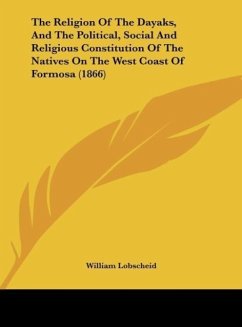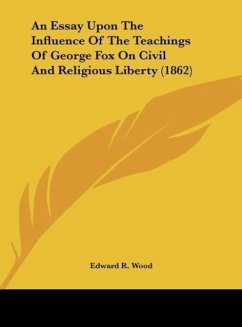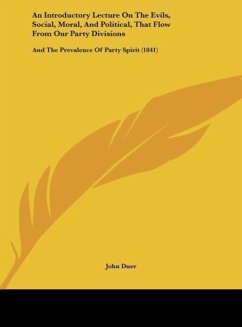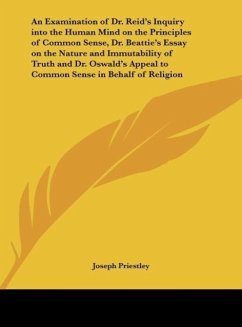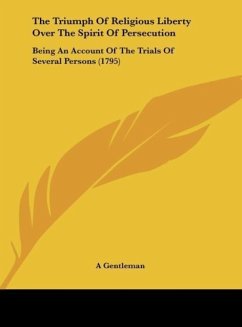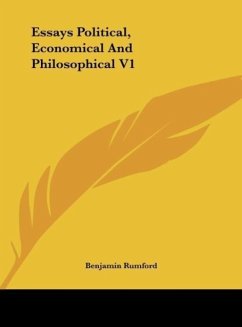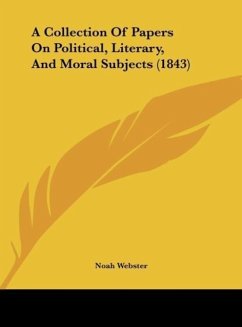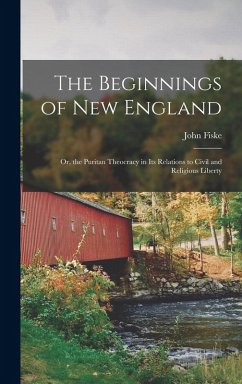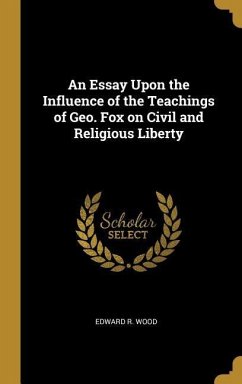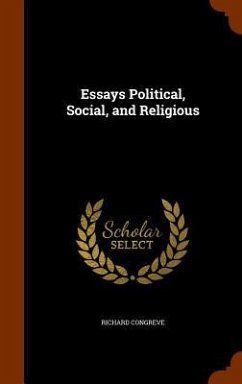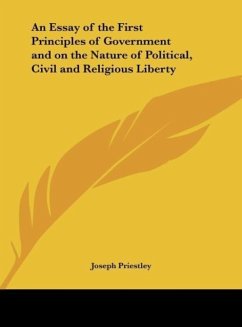
An Essay of the First Principles of Government and on the Nature of Political, Civil and Religious Liberty
Versandkostenfrei!
Versandfertig in 1-2 Wochen
32,99 €
inkl. MwSt.

PAYBACK Punkte
16 °P sammeln!
1748. In this treatise, Mr. Priestley proposes no more than to consider the first principles of civil and religious liberty, and to explain some leading ideas upon the subject. This subject is in the highest degree interesting to humanity, it is open to philosophical discussion. Having no other views than to promote a thorough knowledge of this subject, not being sensible of any bias to mislead him in his inquiries, and conscious of the uprightness of his intentions, Mr. Priestley freely submits his thoughts to the examination of all impartial judges. Due to the age and scarcity of the origina...
1748. In this treatise, Mr. Priestley proposes no more than to consider the first principles of civil and religious liberty, and to explain some leading ideas upon the subject. This subject is in the highest degree interesting to humanity, it is open to philosophical discussion. Having no other views than to promote a thorough knowledge of this subject, not being sensible of any bias to mislead him in his inquiries, and conscious of the uprightness of his intentions, Mr. Priestley freely submits his thoughts to the examination of all impartial judges. Due to the age and scarcity of the original we reproduced, some pages may be spotty, faded or difficult to read. Written in Old English.



